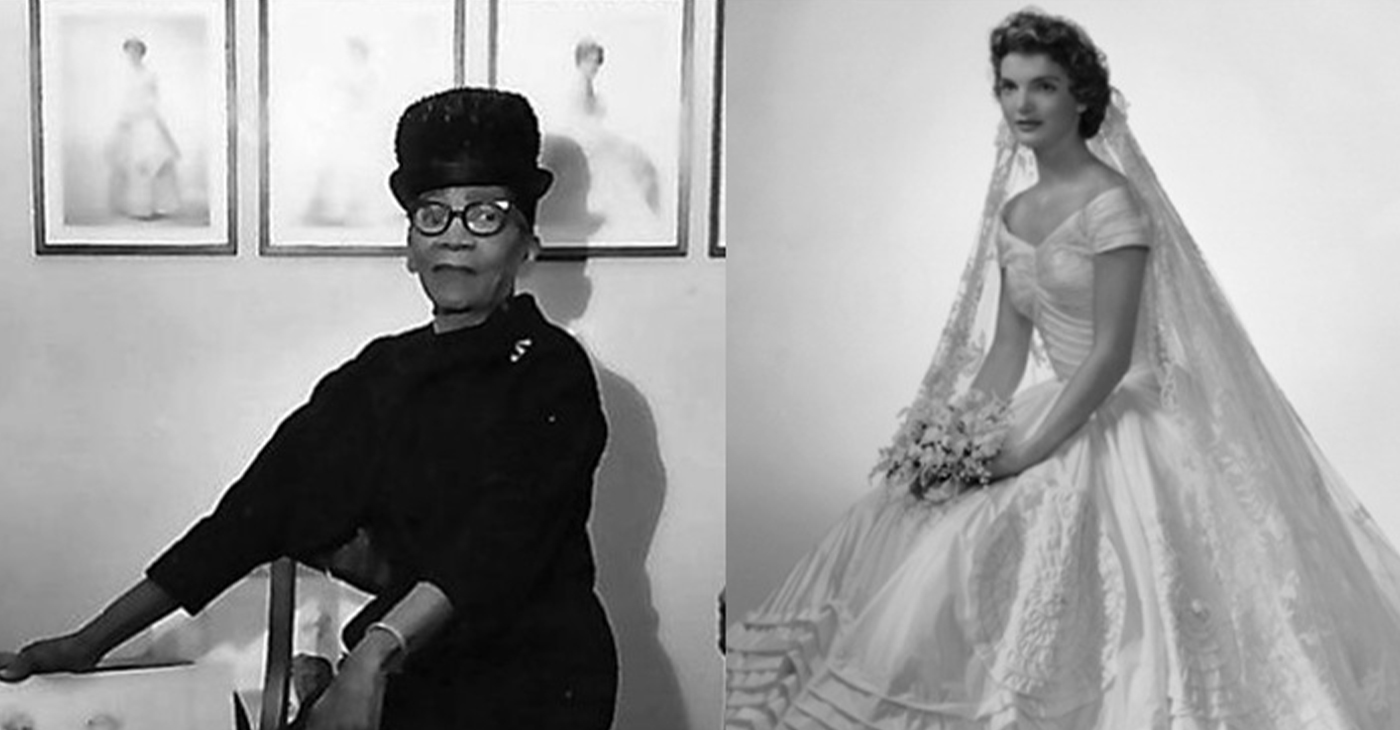Business
Dow Reshuffle: Apple Joins Blue-Chip Index, AT&T Gets Booted

In this Wednesday, Nov. 20, 2013, file photo, the Apple logo is illuminated in the entrance to the Fifth Avenue Apple store, in New York. (AP Photo/Mark Lennihan)
BERNARD CONDON, AP Business Writers
MAE ANDERSON, AP Business Writers
NEW YORK (AP) — Apple is in. AT&T is out.
In another milestone for the popular and profitable iPhone giant, Apple will replace AT&T in the venerable Dow Jones industrial average on March 19, the manager of the index announced Friday.
The move isn’t likely to impact the 30-stock index much, and will have no effect on the fortunes of the two companies. But market experts say it does have symbolic importance, sort of like getting an Oscar at the Academy Awards — or at least a nomination.
The change cements Apple as “the gold standard of technology,” says Daniel Ives, a financial analyst at FBR Research. “They’ve really become the modern-day Wright Brothers.”
The reshuffling of the 119-year-old Dow, a barometer of market fortune and folly once dominated by railroads, also reflects a changed business world.
“It underscores that technology continues to be a critical driver of the overall economy,” says Edward Jones analyst Bill Kreher.
Apple is the world’s most valuable company. Its market value on the stock exchange, or what it would take to buy all its shares, closed last month above $700 billion, a first for any company.
Apple won’t get top billing in the Dow, though. Thanks to a quirk in the way the index is calculated, that honor will go to a company a little over a tenth as valuable: Goldman Sachs.
The Dow weights companies by how much it costs to buy a single share, not all of them. On Friday, a Goldman share fetched $186.91 versus $126.60 for Apple.
A look at the musical chairs at the world’s most famous index:
THE REASON
For all the symbolic importance, the trigger for the move is less colorful. The manager of the index, the S&P Dow Jones Indices, said it’s making the change in response to a planned stock split for Visa, another Dow member.
After its four-to-one split, Visa will wind up with a lower price. S&P said that would reduce the weight of the information technology sector in the Dow because Visa, a credit-card and payment-processing giant, counts as a tech stock. Adding Apple will help balance out this reduction.
TWEAKING THE INDEX
S&P Dow Jones Indices said the decision to fold in Apple won’t alter the overall level of the index, which stood at 17,856 Friday.
S&P Dow Jones is casting the move as a sort of a housekeeping maneuver, a way to ensure that the index better reflects the U.S. economy and markets.
The switch is not a reflection of its view of Apple.
“This doesn’t mean we like the stock, or don’t like the stock, or something like that,” says David Blitzer, chairman of the index committee at S&P Dow Jones.
CHALLENGES AT AT&T
While the Dow change wasn’t triggered by anything AT&T did, it comes at a challenging time for the phone giant.
The nation’s second-largest wireless carrier is facing pressure from smaller rivals T-Mobile and Sprint in a competitive environment in which most Americans already have a cellphone.
Its stock has risen just 3.5 percent in the past 12 months. That compares with a 10.4 percent gain in the Standard & Poor’s 500. Apple, meanwhile, has jumped 67 percent.
To keep growing, AT&T has had to look beyond cellphones — to tablets and connected cars, for example. Adding a tablet to a phone plan gets AT&T another $10 in monthly service fees.
The Dallas-based company is also trying to wean customers off equipment subsidies and shift them toward installment plans in which they ultimately pay full price for a phone.
In its most recent quarter, AT&T booked a loss due to one-time expenses. But its revenue rose 4 percent as it added 1.9 million subscribers, double the year-ago quarterly increase.
AT&T has bounced in and out of the blue chip average over the Dow’s long history. It first entered in 1916 as American Telephone & Telegraph, joining Central Leather, Studebaker and other industrial giants in an elite club of 20 companies. Much later, in 2004, AT&T was kicked out only to return the following year when it merged with SBC Communications.
THE DOW STILL MATTERS
Created in 1896, the Dow is one of the oldest gauges of stocks. Grover Cleveland was U.S. president that year. Companies like the Pacific Mail Steamship were counted among its ranks.
The index tracks only 30 stocks. The Standard & Poor’s 500 reflects the moves of 500.
The S&P 500 also ranks companies differently, assigning weights based on the value of all a company’s shares, not just one. That gives Apple more influence on daily moves in the index than any other stock. It accounts for nearly 4 percent of the index.
Professional investors focus more on the S&P 500 because they think it reflects the stock market better. They tend to use that index, not the Dow, to judge the performance of their own portfolios.
Ordinary investors also prefer the S&P 500, judging from the money they’ve put into index funds that mimic its performance. Investors have $4 trillion in 1,261 funds that track the S&P 500, according to Morningstar. That compares with just $13.6 billion in 12 Dow-based index funds.
Still, the Dow can’t be dismissed as a relic. It continues to be much cited and isn’t seen as wildly distorted.
One reason is that, for all its flaws, the Dow has largely mirrored the ups and downs of the much larger S&P 500. In the past 12 months, for instance, the Dow has risen 8.7 percent versus the S&P 500’s 10.4 percent.
The last big Dow shake-up came in September 2013, when Goldman Sachs, Nike and Visa knocked out Alcoa, Bank of America and Hewlett-Packard.
___
AP Business Writer Matthew Craft contributed to this report.
Copyright 2015 The Associated Press. All rights reserved. This material may not be published, broadcast, rewritten or redistributed.
Activism
Ann Lowe: The Quiet Genius of American Couture
Lowe was born in Clayton, Alabama, into a family of gifted seamstresses. Her mother and grandmother were well-known dressmakers who created exquisite gowns for women in the area. By the time Lowe was a young girl, she was already showing extraordinary talent — cutting, sewing, and decorating fabric with a skill that far exceeded her age. When her mother died unexpectedly, Lowe – only 16 years old then – took over her mother’s sewing business, completing all the orders herself.

By Tamara Shiloh
Ann Cole Lowe, born Dec.14, 1898, was a pioneering American fashion designer whose extraordinary talent shaped some of the most widely recognized and celebrated gowns in U.S. history.
Although she designed dresses for society’s wealthiest families and created masterpieces worn at historic events, Lowe spent much of her life in the shadows — uncredited, underpaid, yet unmatched in skill. Today, she is celebrated as one of the first nationally recognized African American fashion designers and a true visionary in American couture.
Lowe was born in Clayton, Alabama, into a family of gifted seamstresses. Her mother and grandmother were well-known dressmakers who created exquisite gowns for women in the area. By the time Lowe was a young girl, she was already showing extraordinary talent — cutting, sewing, and decorating fabric with a skill that far exceeded her age. When her mother died unexpectedly, Lowe – only 16 years old then – took over her mother’s sewing business, completing all the orders herself. This early responsibility would prepare her for a lifetime of professional excellence.
In 1917, Lowe moved to New York City to study at the S.T. Taylor Design School. Although she was segregated from White students and forced to work separately, she, of course, excelled, graduating earlier than expected. Her instructors quickly recognized that her abilities were far above the typical student, especially her skill in hand-sewing, applique, and intricate floral embellishment – techniques that would become her signature.
Throughout the 1920s and 1930s, she designed gowns for high-society women in Florida and New York, operating boutiques and working for prestigious department stores. Her reputation for craftsmanship, originality, and elegance grew increasingly. She was known for creating gowns that moved beautifully, featured delicate hand-made flowers, and looked sculpted rather than sewn. Many wealthy clients specifically requested “an Ann Lowe gown” for weddings, balls, and galas.
Her most famous creation came in 1953: the wedding gown worn by Jacqueline Bouvier when she married Massachusetts Sen. John F. Kennedy. The dress – crafted from ivory silk taffeta with dozens of tiny, pleated rosettes – became one of the most photographed bridal gowns in American history. Despite this achievement, Lowe received no public credit at the time. When a flood destroyed her completed gowns 10 days before the wedding, she and her seamstresses worked day and night to remake everything – at her own expense. Her dedication and perfectionism never wavered.
She eventually opened “Ann Lowe Originals,” her own salon on New York’s Madison Avenue. She served clients such as the Rockefellers, DuPonts, Vanderbilts, and actresses like Olivia de Havilland. Yet even with her wealthy clientele, she struggled financially, often undercharging because she wanted every dress to be perfect, even if it meant losing money.
Lowe’s contributions were finally recognized later in life. Today, her exquisite gowns are preserved in museums, including the Smithsonian National Museum of African American History and Culture and the Metropolitan Museum of Art.
In the last five years of her life, Lowe lived with her daughter Ruth in Queens, N.Y. She died at her daughter’s home on Feb. 25, 1981, at the age of 82, after an extended illness.
Activism
BRIDGE Housing President and CEO Ken Lombard Scores Top Honors for Affordable Housing Leadership
The Development Company of the Year honor represents a milestone for BRIDGE Housing, which received the Gold award—its top designation—in a category that included both affordable and market-rate developers. The recognition caps what has been one of the strongest growth periods in the organization’s 42-year history.

By the Oakland Post Staff
San Francisco-based BRIDGE Housing and its president and CEO, Ken Lombard, have been named among the nation’s housing industry standouts, earning two of the top prizes at the 2025 Multi-Housing News Excellence Awards.
BRIDGE Housing was named Development Company of the Year, while Lombard received Executive of the Year, recognition that places the nonprofit affordable housing provider alongside leading national developers of both affordable and market-rate housing.
The awards were announced in New York for the accomplishments achieved during 2024.
Multi-Housing News is one of the industry’s most respected publications. Award winners are selected by a panel of housing professionals, including multifamily developers, architects, and owners.
“BRIDGE Housing is deeply honored to be recognized by Multi-Housing News and our industry peers,” Lombard said. “These awards are a testament to the high-impact, mission-driven work by BRIDGE’s exceptional team to deliver quality affordable housing and support services that empower residents to improve their lives.”
The Development Company of the Year honor represents a milestone for BRIDGE Housing, which received the Gold award—its top designation—in a category that included both affordable and market-rate developers. The recognition caps what has been one of the strongest growth periods in the organization’s 42-year history.
In 2024, BRIDGE significantly expanded its footprint across California, Oregon, and Washington. That momentum continued into 2025, with portfolio growth of 9%, including the addition of nine new communities and 1,187 new or acquired affordable housing units. The nonprofit also added three new projects to its development pipeline as it nears a portfolio of 16,000 units.
The growth reflects a broader strategy aimed at accelerating both acquisitions and ground-up development, supported by partnerships with major financial institutions and innovative capital markets strategies. BRIDGE has also emphasized high-quality design and deep community engagement as central elements of its approach.
BRIDGE became the first affordable housing developer to issue tax-exempt construction bonds for one of the largest affordable housing projects in Portland, Ore., leveraging its strong credit rating.
Earlier this year, the nonprofit launched the BRIDGE Housing Impact Fund, with a goal of investing $1 billion to preserve and create affordable housing. It also closed on $175 million in taxable general-obligation bonds after increasing the offering in response to strong investor demand.
The company’s performance also underscores the role of Lombard, who has led BRIDGE since 2021 and was honored individually for his leadership.
Under Lombard’s tenure, BRIDGE has built a new leadership team with experience drawn from both the nonprofit and private sectors, with a particular focus on what the organization describes as efforts to “break the status quo,” especially in affordable housing finance. Those initiatives have helped reduce capital and construction costs, strengthen relationships with institutional investors, and expand resident support services.
Today, BRIDGE Housing serves more than 33,000 residents across 139 communities on the West Coast.
“Ken has dedicated his career to innovative real estate solutions that improve the quality of life in underserved neighborhoods,” said Kenneth Novack, chair of BRIDGE Housing’s board of directors. “His visionary leadership and the work of our incredible team have positioned BRIDGE for long-term growth that will extend our impact throughout the West Coast.”
Founded in 1983, BRIDGE Housing has helped create more than 23,000 affordable homes with a total development cost of $6 billion.
Activism
Mayor Lee, City Leaders Announce $334 Million Bond Sale for Affordable Housing, Roads, Park Renovations, Libraries and Senior Centers
Saying “Oakland is on the move,” Mayor Barbara Lee announces results of Measure U bond sale, Dec. 9, at Oakland City Hall with city councilmembers and city staff among those present. Photo courtesy of the City of Oakland.

By Post Staff
The City of Oakland announced this week that it is successfully moving forward on the sale of $334 million of General Obligation bonds, a milestone that will provide the city with capital funding for city departments to deliver paved roads, restored public facilities, and investments in affordable housing.
“Oakland is on the move and building momentum with this bond sale,” said Oakland Mayor Barbara Lee. “We are reviving access to funding for paving our streets, restoring public facilities we all use and depend upon, and investing in affordable housing for our community, all while maintaining transparency and fiscal discipline.”
“These bonds represent our city’s continued commitment to sound financial management and responsible investment in Oakland’s future,” said Lee.
“Together, we are strengthening our foundation for generations to come,” she said. “I’m grateful to our partners in the City Council for their leadership and support, and to City Administrator Jestin Johnson for driving this process and ensuring we brought it home.”
According to the city, $285 million of the bonds will support new projects and $49 million of the bonds will refund existing bonds for debt service savings.
Oakland issued the Measure U bonds on Dec. 4 after two years of delays over concerns about the city’s financial outlook. They all sold in less than a week.
The new money bonds will pay for affordable housing, roadway safety and infrastructure improvements, and renovations to parks, libraries, senior centers, and other public facilities under the city’s Measure U Authorization.
Citywide paving and streetscape projects will create safer streets for Oaklanders. Additionally, critical facilities like the East Oakland Senior Center and San Antonio Park will receive much-needed renovations, according to the city.
Some of the projects:
- $50.5 million – Citywide Street Resurfacing
- $13 million – Complete Streets Capital Program
- $9.5 million – Curb Ramps Program
- $30 million – Acquisition & Preservation of Existing Affordable Housing
- $33 million – District 3: Mandela Transit-Oriented Development
- $28 million – District 6: Liberation Park Development
- $3 million – District 5: Brookdale Recreation Center Capital Project
- $1.5 million – District 1: Oakland Tool Lending Library (Temescal Branch Library)
- $10 million – District 3: Oakland Ice Center
“I recognize that many naysayers said we couldn’t do it,” said Johnson. “Well, you know what? We’re here now. And we’re going to be here next year and the year after. The fact is we’re getting our fiscal house in order. We said we were going to do it — and we’re doing it.”
Investors placed $638 million in orders for the $334 million of bonds offered by the City. There was broad investor demand with 26 separate investment firms placing orders. The oversubscription ultimately allowed the city to lower the final interest rates offered to investors and reduce the city’s borrowing cost.
“The oversubscription ultimately allowed the City to lower the final interest rates offered to investors and reduce the City’s borrowing cost,” said Sean Maher, the city’s communications director.
“The Oakland City Council worked closely with the administration to both advance the bond issuance process and ensure that the community had a clear understanding of the City’s timeline and approach,” said Councilmember at-Large Rowena Brown.
“In September, the City Council took unanimous action to authorize the Administration to move forward with the bond sale because these funds are essential to delivering the very improvements our communities have long asked for – safer streets, restored public facilities, and expanded affordable housing,” she said.
Continuing, Brown said, “I want to extend my sincere thanks to City Administrator Jestin Johnson, Finance Director Bradley Johnson, and Mayor Barbara Lee for their leadership, diligence, and steady guidance throughout the City’s bond sale efforts.
“Navigating complex market conditions while keeping Oakland’s long-term infrastructure needs front and center is no small task, and this moment reflects tremendous professionalism and persistence,” she said.
Moody’s gave the city an AA2 rating on the bonds, its third-highest rating, which it gives to high-quality investment-grade securities.
There was both a tax-exempt portion and a taxable portion for the bond offering, reflecting the various uses of the bond proceeds, according to a statement released by the city.
The $143.5 million of tax-exempt bonds have a 30-year final maturity and received an all-in borrowing cost of 3.99%. The $191 million of taxable bonds have a 24-year final maturity and received an all-in borrowing cost of 5.55%.
The $49 million in tax-exempt bonds that refinance existing obligations of the City resulted in $5.6 million of debt service savings for taxpayers through 2039, or $4.7 million on a present value basis.
Mayor Lee said that, based on her experience serving on the House Financial Services Committee of the U.S. Congress for more than 10 years, city staff has done an exemplary job.
“I have witnessed many cities go to the bond market throughout the years,” she said. “I can tell you with certainty that Oakland’s team is remarkable, and our residents should be proud of their reputation, their competence, and their deep knowledge of this very sophisticated market.”
Looking ahead to the final sale of the bonds, according to the city press statement, pricing marks the point at which the City and investors locked in the final dollar amounts, interest rates, and other key terms of the bond sale. This stage is commonly referred to as the sale date. At pricing, no funds are exchanged. The actual delivery of bonds and receipt of monies occurs at closing, which is scheduled within the next two weeks.
Capital projects receiving this funding will proceed on individual timelines based on their individual conditions and needs. At the time of closing, funding will be immediately available to those projects.
-

 Activism4 weeks ago
Activism4 weeks agoIN MEMORIAM: William ‘Bill’ Patterson, 94
-

 Activism3 weeks ago
Activism3 weeks agoOakland Post: Week of November 19 – 25, 2025
-

 #NNPA BlackPress3 weeks ago
#NNPA BlackPress3 weeks agoBeyoncé and Jay-Z make rare public appearance with Lewis Hamilton at Las Vegas Grand Prix
-

 #NNPA BlackPress4 weeks ago
#NNPA BlackPress4 weeks agoLewis Hamilton set to start LAST in Saturday Night’s Las Vegas Grand Prix
-

 #NNPA BlackPress2 weeks ago
#NNPA BlackPress2 weeks agoLIHEAP Funds Released After Weeks of Delay as States and the District Rush to Protect Households from the Cold
-

 Alameda County2 weeks ago
Alameda County2 weeks agoSeth Curry Makes Impressive Debut with the Golden State Warriors
-

 Activism3 weeks ago
Activism3 weeks agoOakland Post: Week of November 26 – December 2, 2025
-

 #NNPA BlackPress2 weeks ago
#NNPA BlackPress2 weeks agoSeven Steps to Help Your Child Build Meaningful Connections




















































